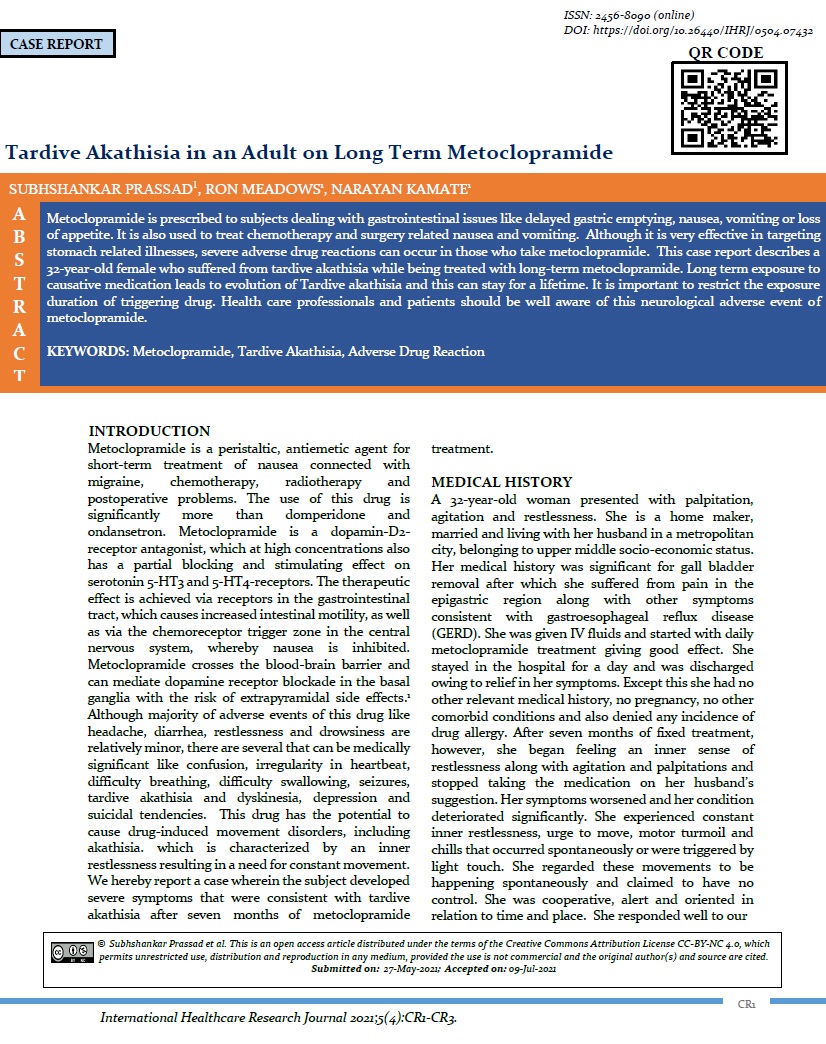Tardive Akathisia in an Adult on Long Term Metoclopramide
Abstract
Metoclopramide is prescribed to subjects dealing with gastrointestinal issues like delayed gastric emptying, nausea, vomiting or loss of appetite. It is also used to treat chemotherapy and surgery related nausea and vomiting. Although it is very effective in targeting stomach related illnesses, severe adverse drug reactions can occur in those who take metoclopramide. This case report describes a 32-year-old female who suffered from tardive akathisia while being treated with long-term metoclopramide. Long term exposure to causative medication leads to evolution of Tardive akathisia and this can stay for a lifetime. It is important to restrict the exposure duration of triggering drug. Health care professionals and patients should be well aware of this neurological adverse event of metoclopramide.
Downloads
References
Rao AS, Camilleri M. Review article: metoclopramide and tardive dyskinesia. Aliment Pharmacol Ther. 2010;31(1):11-9. https://doi.org/10.1111/j.1365-2036.2009.04189.x.
Fahn S, Jankovic J, Hallett M. Principles and practice of movement disorders: the tardive syndromes: phenomenology, concepts on pathophysiology and treatment, and other neuroleptic-induced syndromes. 2nd ed, Saunders, Philadelphia 2011. p.415.
Wijemanne S, Jankovic J, Evans RW. Movement Disorders From the Use of Metoclopramide and Other Antiemetics in the Treatment of Migraine. Headache. 2016;56(1):153-61. https://doi.org/10.1111/head.12712.
Zutshi D, Cloud LJ, Factor SA. Tardive Syndromes are Rarely Reversible after Discontinuing Dopamine Receptor Blocking Agents: Experience from a University-based Movement Disorder Clinic. Tremor Other Hyperkinet Mov (NY). 2014 Oct 23;4:266. https://doi.org/10.7916/D8MS3R8C.

Copyright (c) 2021 Subhshankar Prassad et al.

This work is licensed under a Creative Commons Attribution-NonCommercial 4.0 International License.


